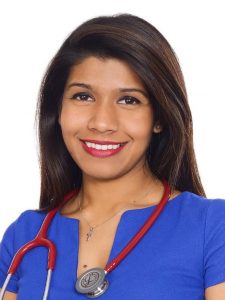Facts about breast cancer
- According to the World Health Organisation “Breast cancer is the most common cancer among women worldwide, claiming the lives of hundreds of thousands of women each year .
- One in eight women will be diagnosed with breast cancer in her lifetime.
- Breast cancer is the second leading cause of cancer death among women.
- Every 2 minutes a woman is diagnosed with breast cancer.
- Men can get breast cancer, too, but they account for just one percent of all breast cancer cases.
The good news
Breast cancer related death rates have been declining, due to better screening, early detection, increased awareness and newer treatment options.
The types of breast cancer
The vast majority of breast cancers begin in the parts of the breast tissue that are made up of glands for milk production, called lobules, and ducts that connect the lobules to the nipple. The remainder of the breast is made up of fatty, connective, and lymphatic tissues.
The most common kinds of breast cancer are
- Invasive ductal carcinoma when the cancer cells grow outside the ducts into other parts of the breast tissue.
- Invasive lobular carcinoma when the Cancer cells spread from the lobules to the breast tissues that are close by.
- There are several other less common kinds of breast cancer such as Pagets disease, medullary, mucinous, and inflammatory breast cancer.
Ductal Carcinoma in Situ (DCIS) and Lobular Carcinima In Situ LCIS are changes within the breast tissue that might develop into breast cancer in some women. LCIS is considered a marker for increased risk for developing invasive cancer. LCIS is much less common than DCIS.
What are the signs and symptoms of breast cancer?
Breast cancer typically produces no symptoms when the tumor is small. Therefore, it is very important for women to follow recommended screening guidelines for detecting breast cancer at an early stage.
It is important to be “breast aware” –to know the look and feel of your breasts, by regular self breast examination.
Signs you should look out for include:
- New lump in the breast or armpit
- Change in the size or shape of the breast
- Irritation or dimpling of breast skin
- Pulling in of the nipple, pain in the nipple area
- Discharge from the nipple other than breast milk
- Redness, crusting, flaky skin in the nipple area of the breast
- A pain that does not go away.
Conditions other than breast cancer can cause these symptoms but it is important to see your doctor to get them checked, even if your screening mammogram was normal.
What increases your risk of breast cancer?
- The most significant risk factors for breast cancer are being a woman and growing older.
- 80% of breast cancers occur after the age of 50 years.
- A family history of breast cancer, a woman’s risk for breast cancer is higher if she has a mother, sister or daughter (first-degree relative)
- Genetic mutations. 5-10 % of breast cancer occurs due to inherited changes to certain genes eg. BRCA1 and BRCA2.
- Early menstrual period. Women who start their periods before age 12.
- Starting menopause after age 55.
- Using hormone replacement therapy for more than 5 years.
- Taking oral contraceptives (birth control pills). Certain forms of oral contraceptive pills have been found to raise breast cancer risk.
- Not being physically active.
- Being overweight or obese after menopause.
- Drinking alcohol. Studies show that a woman’s risk for breast cancer increases with the more alcohol she drinks.
- Late or no pregnancy. Having the first pregnancy after age 30 and never having a full-term pregnancy can raise breast cancer risk.
- Personal history of certain non-cancerous breast diseases.
- Previous treatments using radiation therapy.
What is breast cancer screening?
Regular mammography is the most reliable way to detect breast cancer. Screening for breast cancer can detect cancer in its early stage for effective treatment. It is important to speak to your doctor about your individual risk of breast cancer and to determine the most appropriate screening for you.
- Singapore breast cancer screening guidelines suggests women aged 40-49 years should have an annual mammogram and woman over 50 years should have screening every 2 years.
- The American Cancer Society recommends women with an average risk of breast cancer should begin yearly mammography at age 45. It suggests women should be able to start screening at 40 years if they want to. It advises that women start talking to your doctor at age 40 about when to begin screening.
- Breast Screen Australia has screening for women between the age of 50-74 years every 2 years, However women age 40 -49 years can ask their GP for screening as well.
- The National Health Service in the UK invites women between the age of 50- 70 years old every 3 years.
How do you diagnose breast cancer?
Ultrasound, mammogram, MRI scans and breast biopsy (taking tissue or fluid from a breast lump) can be used to diagnose breast cancer.
How is breast cancer treated?
The treatment of breast cancer depends on the type of cancer and if it has spread. Treatment may consist of a combination of surgery, chemotherapy, radiotherapy or hormone therapy.
How do you reduce your risk of breast cancer?
Breast cancer is the 2nd leading cause of cancer deaths. To reduce your risk it is advisable to increase exercise, reduce your alcohol intake and maintain a normal BMI. It is important to have a discussion with your doctor about your individual risk and decide together on when to start breast screening.
If you would like a copy of this article for future reference or information you can download a PDF version by clicking on the link Breast Cancer – Dr. Sonali Dassanaike answers all your questions

Please call 6733 4440 to make an appointment.




































